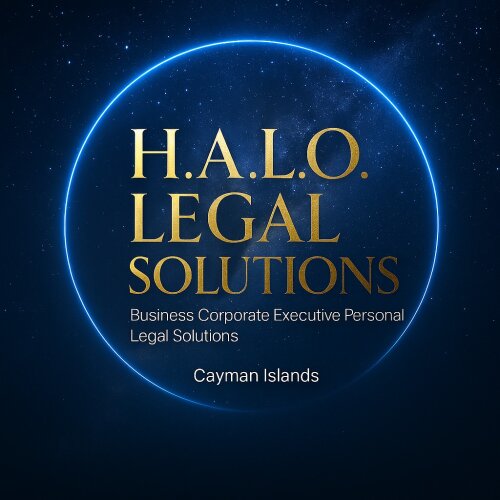Best Funds & Asset Management Lawyers in Cayman Islands
Share your needs with us, get contacted by law firms.
Free. Takes 2 min.
Or refine your search by selecting a city:
List of the best lawyers in Cayman Islands
About Funds & Asset Management Law in Cayman Islands
The Cayman Islands is recognized as a leading global hub for funds and asset management. Its legal framework is especially favorable for investment funds, asset managers, and institutional investors. The jurisdiction offers flexible regulations, tax neutrality, and a robust financial services sector, making it a preferred option for launching and managing hedge funds, private equity funds, real estate funds, and other investment structures. The legal environment is governed by a combination of statute law, regulations, and guidance from financial regulators, all designed to support efficient and transparent fund operations while maintaining investor confidence.
Why You May Need a Lawyer
Legal professionals play an essential role in guiding clients through the complex landscape of funds and asset management in the Cayman Islands. You may need a lawyer if you are:
- Setting up a new investment fund and need advice on structure and regulatory compliance
- Navigating ongoing fund management requirements, filings, and annual reporting
- Faced with regulatory investigations or compliance issues from the Cayman Islands Monetary Authority (CIMA)
- Considering fund restructurings, wind-downs, or liquidations
- Dealing with investor disputes, fund documentation, or contractual matters
- Evaluating cross-border investments or asset protection strategies
- Addressing anti-money laundering (AML) and know your customer (KYC) compliance requirements
Legal guidance helps ensure that you follow all local laws, minimize risks, and safeguard both assets and investor interests.
Local Laws Overview
The legal foundation for funds and asset management in the Cayman Islands is built on several key statutes and regulatory bodies:
- Cayman Islands Monetary Authority (CIMA): The principal financial regulator responsible for the oversight and enforcement of the funds and asset management sector.
- Mutual Funds Act: The main law regulating open-ended investment funds, both registered and licensed, including disclosure, conduct, and ongoing obligations for fund operators.
- Private Funds Act: Governs closed-ended funds, imposing requirements relating to registration, valuation, safekeeping of assets, and ongoing reporting.
- Companies Act, Limited Liability Companies Act, and Exempted Limited Partnership Act: Statutes offering flexible vehicles for fund formation, providing for limited liability structures, and safeguarding investment interests.
- Anti-Money Laundering Regulations (AML): Comprehensive laws to ensure robust AML and KYC standards across all funds and managers operating from or within the jurisdiction.
- Automatic Exchange of Information (AEOI): Laws relating to global tax compliance, including FATCA (Foreign Account Tax Compliance Act) and CRS (Common Reporting Standard) obligations.
A local lawyer ensures compliance with these laws and keeps clients informed of ongoing regulatory developments or changes.
Frequently Asked Questions
What types of funds can be established in the Cayman Islands?
The Cayman Islands permits the formation of various fund types, including hedge funds, private equity funds, venture capital funds, real estate funds, and funds of funds. Vehicles such as exempted companies, limited liability companies (LLCs), and exempted limited partnerships (ELPs) are commonly used.
Do all funds in the Cayman Islands require registration with CIMA?
Most open-ended funds and closed-ended funds must be registered or licensed with CIMA under local legislation, subject to certain exemptions based on fund structure, investor profile, or investment activity.
What is the difference between an open-ended and a closed-ended fund?
Open-ended funds allow investors to redeem their shares or interests at net asset value on a periodic basis, while closed-ended funds do not permit regular redemption and usually return capital at the end of the fund’s life or after asset realization.
Are there tax advantages to setting up funds in the Cayman Islands?
Yes. The Cayman Islands does not impose direct taxes on capital gains, income, profits, or distributions made by investment funds or their investors, making it highly attractive for global clients.
What are the ongoing regulatory requirements for investment funds?
Funds must file annual returns with CIMA, maintain proper AML compliance, submit audited financial statements, and notify CIMA of material changes to the fund or its operators.
What is AML compliance and why is it important?
AML compliance refers to the policies and procedures that prevent the use of investment funds for money laundering or terrorist financing. These rules are strictly enforced, and non-compliance can result in severe penalties.
How are asset managers regulated in the Cayman Islands?
Asset managers may require licensing or registration, depending on the nature of their activities. They must also comply with conduct standards, suitability assessments, conflict of interest management, and fit and proper person tests.
Can funds established in the Cayman Islands accept investors from any country?
While Cayman funds can generally accept investors worldwide, certain restrictions may apply due to international sanctions, anti-money laundering laws, or the regulatory status of specific investors or jurisdictions.
What legal risks exist when launching or managing a Cayman fund?
Potential risks include regulatory breaches, fund mismanagement, inadequate AML/KYC procedures, contractual disputes, or reputational damage. Engaging legal counsel helps to identify and mitigate these risks.
How long does it take to set up a fund in the Cayman Islands?
The process can be completed in a matter of weeks, depending on the complexity, fund structure, completeness of documentation, and responsiveness to regulatory requirements.
Additional Resources
- Cayman Islands Monetary Authority (CIMA) - The chief regulatory body for investment funds and asset managers operating in the Cayman Islands
- Cayman Islands Government, Department of Financial Services - Provides information and guidance on legal and regulatory matters in finance
- Cayman Islands Fund Administrators Association - Industry body for fund administrators and service providers
- Cayman Islands Law Society - Offers resources for finding qualified legal practitioners in funds and asset management law
- Guidance Notes on the Prevention and Detection of Money Laundering and Terrorist Financing - Legally mandated guidelines on AML requirements
Next Steps
If you are seeking legal advice or assistance in the field of funds and asset management in the Cayman Islands, consider the following steps:
- Determine your specific needs, such as starting a fund, managing compliance, handling disputes, or amending existing structures.
- Gather all relevant information about your fund or asset management activities, including documentation and business objectives.
- Reach out to a qualified legal professional or law firm with expertise in Cayman Islands funds and asset management law.
- Prepare to discuss your requirements in detail to receive tailored legal advice and guidance on the next practical steps.
- Stay updated on regulatory obligations and ensure ongoing communication with your chosen legal advisor for continued compliance.
Professional legal guidance is critical to protecting your interests, meeting regulatory standards, and achieving success in the dynamic Cayman Islands funds and asset management sector.
Lawzana helps you find the best lawyers and law firms in Cayman Islands through a curated and pre-screened list of qualified legal professionals. Our platform offers rankings and detailed profiles of attorneys and law firms, allowing you to compare based on practice areas, including Funds & Asset Management, experience, and client feedback.
Each profile includes a description of the firm's areas of practice, client reviews, team members and partners, year of establishment, spoken languages, office locations, contact information, social media presence, and any published articles or resources. Most firms on our platform speak English and are experienced in both local and international legal matters.
Get a quote from top-rated law firms in Cayman Islands — quickly, securely, and without unnecessary hassle.
Disclaimer:
The information provided on this page is for general informational purposes only and does not constitute legal advice. While we strive to ensure the accuracy and relevance of the content, legal information may change over time, and interpretations of the law can vary. You should always consult with a qualified legal professional for advice specific to your situation.
We disclaim all liability for actions taken or not taken based on the content of this page. If you believe any information is incorrect or outdated, please contact us, and we will review and update it where appropriate.
Browse funds & asset management law firms by city in Cayman Islands
Refine your search by selecting a city.
















